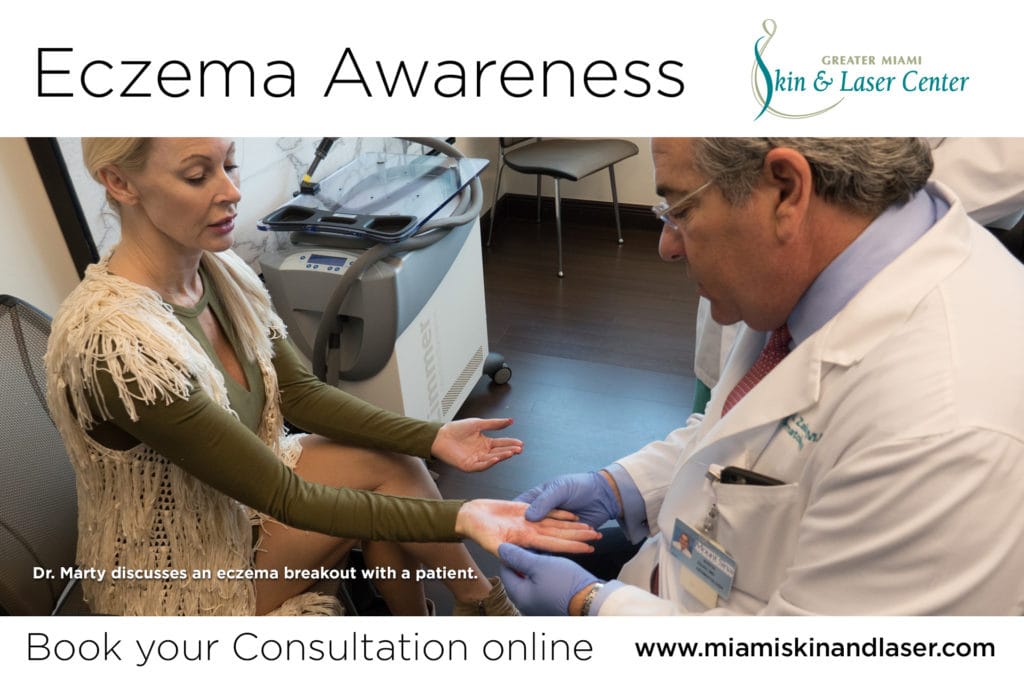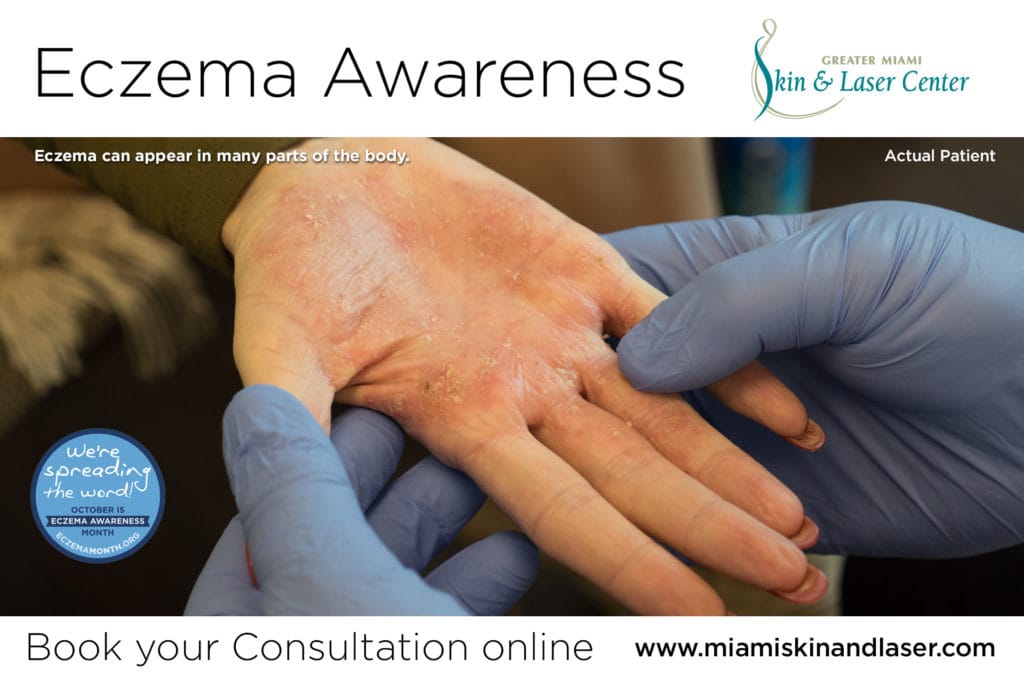Stay healthy while living with eczema.
You can keep eczema symptoms under control. It’s a good idea to know about the normal day triggers in your surroundings like dry skin, allergens, stress, and irritants that might make you or your children’s eczema start, flare up or get worse.
With a proper skin routine, many cases of eczema can be manageable. Your moisturizing, bathing and combination of alternative therapies and prescription medications can make a difference.
These are some basic things you can do to help control eczema.
-
Set a daily skin routine.
Monitor your skin to see how it is working. Be flexible if your symptoms change and adjust your routine as needed.
Be aware of stressful events and situations. Learning how to avoid or cope with them by using stress management techniques on your own or with the help of your doctor or psychologist can be beneficial.
-
Try not to scratch or rub too much.
Limit exposure to things that irritate your skin. Dress in comfortable clothes that breathe. Itchy fabrics like wool can irritate your eczema. See your dermatologist for more tips and information on the basics of eczema skin care.
-
Bathing and showering can actually help your skin if you bathe and shower properly.
A shower or bath is not necessarily an irritant but can be a sort of treatment as long as you apply your emollients after you finish in the shower. If you do not seal in the moisture with emollients or prescribed creams water can worsen your skin. Lukewarm water instead of hot water can be beneficial.
The National Eczema Association has some great information for you. If you want a list of moisturizers, cleansers and hair care products that have earned the Seal of Acceptance from the National Eczema Association. Visit their website for more information.

There are many kinds of different treatments to help you.
- Self-treat your eczema with over the counter treatments and medications and read up on how much to apply. Self treating tactics can include:
- Over-the-counter products and remedies like gentle, non-soap cleansers, petroleum jelly, tar-based products and mineral oils.
- Medications available only with a prescription from a doctor, such as topical corticosteroids, topical calcineurin inhibitors (TCIs) and systemic oral drugs.
- Phototherapy, which exposes the affected area to light under medical supervision.
- Complementary and alternative therapies, including acupuncture, supplements and stress reduction techniques.
- Eczema symptoms are different for everyone. Not everyone will respond to a treatment in the same way, It’s best to get familiar with all of the options and talk to your dermatologist to find a treatment that works for you.
- Common eczema treatments to help self treat include some over the counter products (OTC).
- OTC treatments are products or medications you can buy without a prescription. Some OTC eczema treatments are used for moisturizing skin; some are used to help skin symptoms such as rash, redness, and itchiness; and some are for gently cleaning skin to prevent infection. Here are some topics to research and learn about.
Bathing Tips
The best way to treat dry skin is to give it moisture. Proper bathing and moisturizing. Is important. Soaking in a warm bath or taking a warm shower and then moisturizing the skin within three minutes is a good regiment. Sometimes your doctor will recommend using other additives to the bath water to improve treatment.
Learn more about bathing as a treatment for eczema from the National Eczema Association.
Moisturizing Tips
I can never say this too often but moisturizing your skin is very important. When skin gets too dry, it can become irritated and cause your eczema to flare up. Many things can lead to eczema flare-ups. Wind, low humidity, cold temperatures, harsh soaps and too much washing without the use of a moisturizer immediately afterward can all can lead to dry skin.
Bathing and properly moisturizing are two of the most important things you can do to help control dry skin and eczema flare-ups. It’s important for you to learn and to understand how and when to properly moisturize, and which products are best to use when you have eczema.
Doctor Prescribed Prescription Topicals
I can prescribe prescription topical medications include corticosteroids (steroids) and topical calcineurin inhibitors (TCIs). These medications are applied to the affected area of the skin to help ease redness, rash and itching. I recommend these kinds if treatment only after a consultation.
In-Office Phototherapy
At the Greater Miami Skin and Laser Center we have a special light source (XTRAC) that is used to emit narrowband ultraviolet B (UVB) light onto the skin in order to help reduce itching and inflammation, increase vitamin D production and bacteria-fighting systems in the skin.
To learn more about phototherapy as a treatment for eczema visit our website.
Complementary & Alternative Therapies
Some studies have indicated that certain complementary and alternative therapies can be beneficial in controlling the symptoms of eczema. These include supplements like plant-based topicals such as coconut oils, meditation and biofeedback.
You need to identify the triggers for your own body and try different treatments to see what works best for you. What works for your friend, relative or child may not work the same way for you. It is a good idea to consult with your dermatologist if you are experiencing eczema like symptoms.
Come see me for a full consultation by making an appointment. Call us on (305) 532-4478 or book your appointment online.


